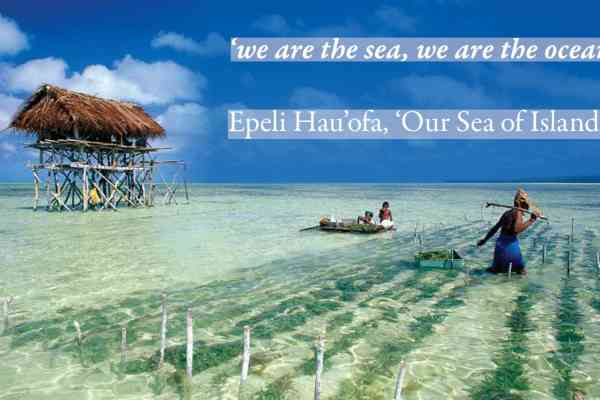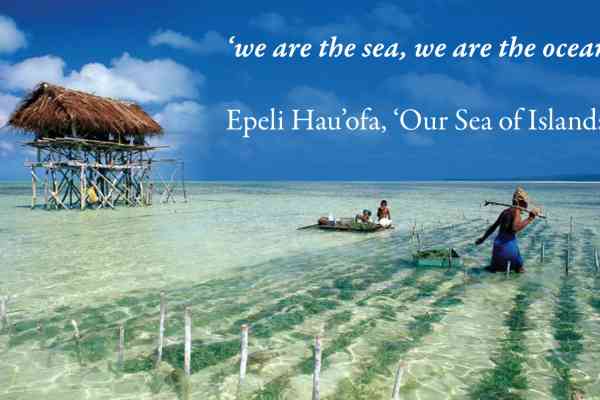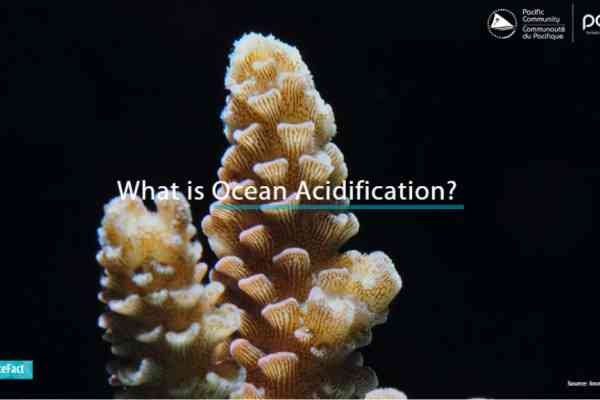Photo: USP and SPC Staff at Ocean Acidification Workshop
Ocean acidification directly impacts local coastal environments and livelihoods in the Pacific. Pacific Islands countries have many reef-dependent communities who are vulnerable to declines in reef condition, demersal and invertebrate fisheries, and aquaculture. Because of this, it is vital that decision-makers and local communities understand how ocean acidification is affecting food security and coastal protection.
To achieve this, the University of the South Pacific (USP) together with the Pacific Community (SPC) hosted a “train the trainer” Ocean Acidification Workshop from in July this year. This was the first face-to-face activity of the Pacific Islands Ocean Acidification Centre (PIOAC).
The PIOAC was recently launched at USP and aims to increase regional expertise in ocean acidification monitoring while providing advice to Pacific Islands governments on adaptation and mitigation approaches. T
“The goal of this workshop was to train an additional PhD qualified trainer and get all the PIOAC core partners together so we could meet and define future goals, but more importantly make sure that everyone is properly trained on all of the equipment so that future training occurs at a high standard and trainers and their assistants are comfortable with making ocean acidification measurements because ocean acidification is happening right now and we need to take immediate action,” said Expert Ocean Acidification trainer Dr Christina McGraw, from the University of Otago.
SPC's Deputy Director-General Science and Capability, Dr Paula Vivili, acknowledged the work that had gone into establishing the Centre, holding this training, planning future activities and getting the regional Centre ready to carry out its crucial role. He said SPC is committed to this ground-breaking partnership between regional CROP agencies and research institutions:
“While rising seas and increased frequency of natural disasters are greatly felt, ocean acidification is probably a more important component of climate change mainly in the long term, impacting livelihoods of Pacific people” he said.
USP's Deputy Vice-Chancellor and Vice-President (Regional Campuses and Global Engagement), Dr Giulio Paunga, said this was one of the many collaborations USP hoped to have with SPC. “As custodians of the Pacific, we must be prepared to work to mitigate and protect our natural resources and this was one of the many ways USP together with SPC were supporting this work”, he said.
Coordinator of SPC’s Pacific Community Centre for Ocean Science (PCCOS), Dr Katy Soapi, said the training was timely as ocean acidification is happening quickly and is difficult to measure. She added that getting everyone together to practice on ocean acidification instruments would enable participants to familiarise themselves with the scientific techniques, making them local experts, who could then train everyone else in the region to conduct those measurements.
The PIOAC was established as a collaborative partnership between USP and SPC with core partners in New Zealand, the University of Otago and the National Institute of Water and Atmospheric research (NIWA) and the National Oceanic and Atmospheric Administration (NOAA), USA.
USP’s role in PIOAC includes providing project advisory staff, a lead chemist and technical support for analysis and training of regional personnel, equipment provision and maintenance and conduct research and monitor availability of funding from donors, and work with core all Centre partners to provide advice on adaptation and mitigation approaches.
SPC’s role includes coordination of the PIOAC, assisting with data management and accessibility, working with USP to provide advice on adaptation and mitigation approaches and drawing in funding with USP on the sustainability of ocean acidification in the region.
For more information, please contact PCCOS's Project Advisor at [email protected].


